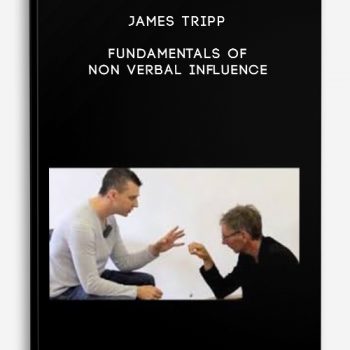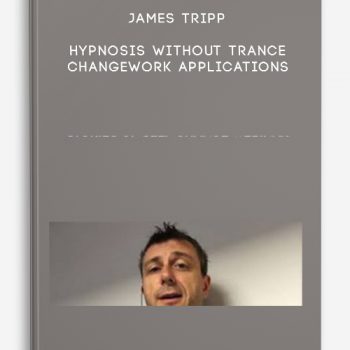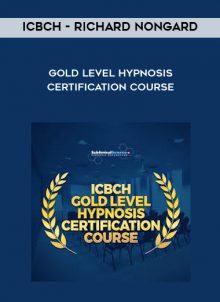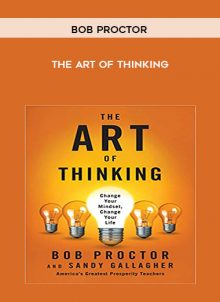 Smoking Cessation Mindshifts from James Tripp
Smoking Cessation Mindshifts from James Tripp
First off – I’m not going to write a lot of ‘sales copy’ about this material because it doesn’t need it. If you are developing yourself as a hypnotist and/or NLPer, you probably already know how much practitioners command in fees for smoking cessation work. My fee is £250 and there are plenty who charge a LOT more than I do.
Being aware of this, you might have already decided that smoking cessation is something that is well be worth you getting good at… and you can!
About
Early in 2015 I invited a small group of interested practitioners to my then offices in Letchworth Garden City to partake in an exploration of my approach to running smoking cessation interventions. We spent the day getting deep into the key understandings, strategy, tactics and psychological subtleties of how I personally approach smoking cessation work within a hypnotherapy/NLP frame.
“Awesome seminar on Smoking Cessation! I was on the train home feeling as though I’d got more value in one day than most courses teach in an entire week! Your work is definitely a cut above the majority of trainers in the field. Can’t wait to see what other courses you’ve got lined up for the year.”
Steve Kirton, Author of ‘Ancient Secrets of the Mind’
As it was a small group event only, many people asked me if I would record it for wider release, so at the last minute I decided that I would. And it has taken me nearly a year to tidy up the recording and get it ready for release!
This result is Smoking Cessation Mindshifts – a 5 hour and 43 minute audio program on conducting effective smoking cessation interventions for those with some skill and grounding in NLP and Hypnosis (your specific background is not important here, so long as you have some skills and tools).
Through this audio exploration I am sharing with you the most effective understandings and approaches that I have utilized and developed across 7 years of working with smokers who are choosing to quit. I am not only sharing with you what I have found to work (and why), but also what I have found to be less useful too (some of which is exactly the kind of thing that some practitioners encourage).
Get Smoking Cessation Mindshifts from James Tripp on Specific Content
There is a lot of material covered in this program! If you like specific details…
Part 1
Blending Tools and Toolkits
Success Rate Vs. Satisfaction Rate
Readiness to Stop
What you can promise the client?
Unshakable Truths
Building Methods You Never Use
Take the Business Side Seriously
Do Your Own Inner Work
Fees
Emphasis on Choice and Personal Power
Influences and Sources
Smoking Becomes embedded Into Lives
Recommending Resources to Clients
How I Escaped the Smoking Trap
The Power of Psychoeduation
4 Pillars – Understanding, Attitude, Decision, Tools and Resourcing
The Smoking Trap
Seeing the Trap Creates Choice
Smoking is the Best Choice Based in Deep Misunderstandings
The Decision and Inner Commitment
Ambivalence Simple
Assessment Questions
What does the smoker consider it to be doing for him/her?
Self Delusion, Understanding and Misunderstanding
Listening to be Impacted – the ‘place of maybe (conversational induction)
Highly Coachable People
The Key Attitude
Rebalancing Sensations
Part 2
Three Fundamental Principles (NOT 3P!)
Deeper Into The Trap
Decision Quality and Key Attitude
Clarity on Your Role
Decision Is Based In Understanding
Mindshift vs Intellectual Comprehension
The ‘Hypnotic’ Mode of Psychoeducation
Serving the Client Vs. Serving the Ego
Character Vs. Personality
The Client Retains Ownership
Managing First Contact with the Client
Taking Charge of the Dynamic
Knowing What You Want to Know
Avoid Outcome Attachment
Don’t Sell… Serve!
Grounding In Your Truth
Price Shopper Mentality
Assessing Readiness and Motivation
The Cycle of Change
The SHORT Path Out of the Trap
Adapt the Interventions to Match the CoC Phase
The 24 Hours Trick
Seeding the Learning frame
ANYONE Can Escape the Trap
The Question of scripts
Deep Trance
Don’t Artificially Amp Motivation
The Power of Slowing Down
Hypnotic Phenomena are Transient
Exploring versus Pushing
Part 3
People Make the Best Choices Given Their Understanding
No Shift, No Change
Understanding Underpins State
Undermining the Motivation to Smoke
Three Powerful Questions – Getting Clear ‘nos’
Owning Addiction
Flipping the script
Smokers Logic and Self Deception
The Two Aspects of the Smoking Trap – Biological and Psychological
The Big Monster and the Little Monster
Addiction is a Bio-Psycho-Social Phenomenon
The Mechanics of the Biological Side
Addiction and Fulfilment
Dopamine Resistance
Overcoming the Natural Response to Poison
It Takes Will and Commitment to Become a Smoker
An Aside on Porn Addiction
Synapses and Neurotransmitters
Nicotinic Receptors and Acetylcholine
‘Neuro System’ vs ‘Nervous System’
Disequilibrium and Rebalancing
Understanding Rebalancing Sensation
The Wanting of an Alien Entity
Thinking Shapes Experience
Proactivity in Transition
Inverting Beliefs
Smoking is a Stressor Not a Calmer
Tight Shoes metaphor
The Concentration Myth
The Danger of Cutting Down
Disabusing the ‘Enjoyment’ Myth
The Myth of ‘Just One Cigarette’
Smoking is a Chain Reaction
You Cannot Reach True Wellbeing as a Smoker
There is NOTHING to Give Up
Pity the Smoker
Substitues – Don’t Feed the Beast
Why Nicotine Patches Are Never ‘Satisfying’ to the Smoker
The Myth of The Right Time
Deeper Issues
Get Smoking Cessation Mindshifts from James Tripp on
Part 4
The Decision Revisited
The “I’m Done With That” Installation
The “Something In Your Past” Suggestion
Embodying the I that Chooses
Cultural Hypnosis
Changing Patterns vs Transcending Patterns
‘Quality of Consciousness’ Does Not Mean ‘Being On Guard’
Inner Stance – Where Are You Coming from?
The Language of Ownership
Choice Versus Constraint
Let the Client Feel the Languaging
Variations between sessions Working on Skype Learning through receiving
embedding the Desired Internal Dialogue
A Yes Set
“Don’t Mope”
Use of ‘Don’t’ Refined
Ideas Being Seeded Vs. Commands Being Given
Tapping Into Fundamental Human Values
Multilevel Communication and Pantamiming
Use of Anchors
Don’t Let the Tool Take the Power From the Client
Giving Tools the Scope to be Less Than Perfect
The Programming metaphor Puts Clients ‘At Effect’
First Phone Call – Beginning to End Run Through
The Three Session Format
Coaching From Understandings vs Teaching Understandings
On the Path vs Drifting
Miscellaneous Tools
Trigger Specific Work
Mental Challenge Preparation
Dilts Levels in Mental Preparation
A Breathing Visualisation
Working Directly With Rebalancing Sensations
Unconscious Buy-In
Trancework
High Mood Therapy Vs. Low Mood Therapy
Shifting from the Personal to the General
SMS Text Work and ‘Thought Bombs’
Variations Between Sessions
Working on Skype
Q: Will I be learning scripts?
A: No, you will not be learning scripts or specific techniques. The program is all about principles and deep understanding. When you understand, you don’t need scripts.
Q: Will I be able to use the material covered straight way?
A: You will be able to use what you learn straight away, providing you have the skills to run hypnosis and NLP processes. The big part of smoking cessation work lies in understanding and attitude more than techniques.
Q: Is there a manual or transcript?
A: At the moment, this is an exclusively audio only program.
Q: Are you a smoking cessation specialist?
A: No. I work with behavioral change across the board so smoking cessation work (and other addictions work) is just part of what I do.
Q: What is your success rate?
A: I have a high success rate (it’s been a while since I worked with someone who failed to quit) BUT, to be clear traditionally I speak to everyone I work with before I work with them, and if they are not 100% committed to quitting smoking I don’t usually work with them. This is explored fully in the program, along with a recent change id strategy and direction. What the client brings is important, as is your ability to assess that. If you are looking for a method that has a high success rate with uncommitted people – good luck!
Get Smoking Cessation Mindshifts from James Tripp on
So what is NLP?
NLP stands for Neuro-Linguistic Programming. Neuro refers to your neurology;
Linguistic refers to language; programming refers to how that neural language functions.
In other words, learning NLP is like learning the language of your own mind!
NLP is the study of excellent communication–both with yourself, and with others.
It was developed by modeling excellent communicators and therapists who got results with their clients.
NLP is a set of tools and techniques, but it is so much more than that.
It is an attitude and a methodology of knowing how to achieve your goals and get results













tristian –
This is Digital Download service, the course is available at Coursecui.com and Email download delivery.